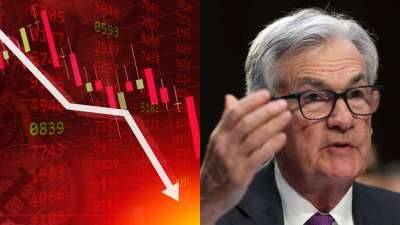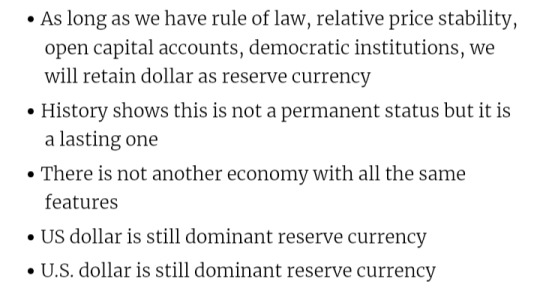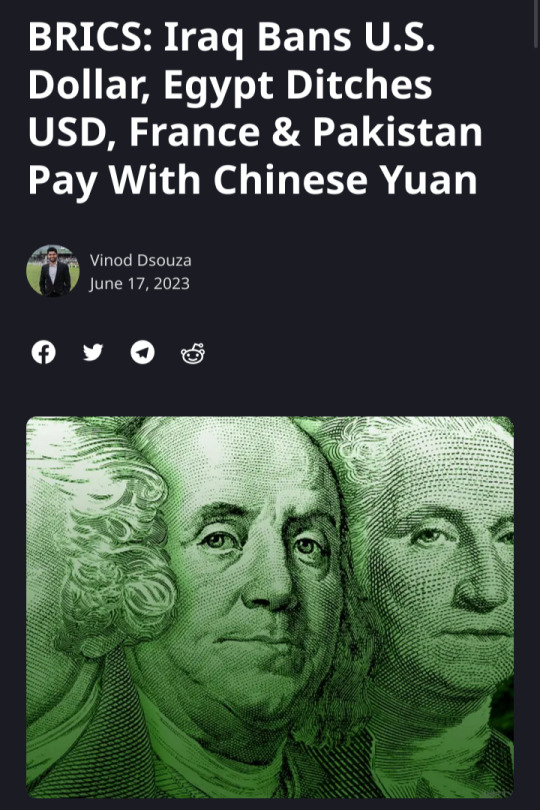#us federal reserve
Explore tagged Tumblr posts
Text
Fed’s Powell marks patient approach after rate cut
The Federal Reserve cut interest rates by a quarter percentage point amid what could be an economic challenge when President-elect Donald Trump takes office next year, according to Reuters.
Fed Chair Jerome Powell said the outcome of Tuesday’s presidential election would not have a “near-term” impact on US monetary policy. Powell added that the Fed will continue to evaluate the data to account for inflation, which slowed markedly last year and is approaching the US central bank’s 2% target.
It’s a process that takes some time. It’s all of the policy changes that are happening. What’s the net effect? The overall effect on the economy at a given time? That’s a process … we go through all the time with every administration.
However, the exact destination remains unknown and will be even harder to determine if fiscal and tax policy changes as quickly as Trump has promised. Powell, who was appointed by Trump and then clashed with him during the Republican president’s first term, will now oversee monetary policy in the first critical months of the new administration.
So far, inflation and interest rates have fallen in line with the Fed’s forecast, which believes price pressures continue to ease amid continued economic growth and the labour market.
Elyse Ausenbaugh, head of investment strategy at J.P. Morgan Wealth Management, did not rule out the possibility of another quarter per cent rate cut at the Fed’s final meeting of the year on December 17-18.
The easy cuts have been made, and maybe December won’t be too contentious either. Thereafter, I imagine the Fed is asking the same questions as investors – to what extent and when will the incoming Trump administration implement its campaign policy proposals?
Powell said the economic outlook was good at this point and the Fed hoped it would remain that way.
This further recalibration of our policy stance will help maintain the strength of the economy and the labor market, and will continue to enable further progress on inflation as we move toward a more neutral stance over time.
The Fed’s policy statement noted that risks to the labour market and inflation are “roughly in balance,” repeating language from the statement issued after the September 17-18 meeting.
Powell stated that the change in wording did not mean that inflation had become sustainable. The Fed, he said, had always expected progress to be uneven, and policymakers have confidence that inflation is on a steady path toward the 2% target.
Read more HERE

#world news#news#world politics#usa#usa politics#usa news#united states#united states of america#us politics#donald trump#donald trump 2024#trump#trump 2024#president trump#republicans#interest rates#jerome powell#us federal reserve#economy#economic growth#economic impact#economic development#economics
2 notes
·
View notes
Text

Federal Reserve stuck between a rock and a hard place
#Federal Reserve#US Federal Reserve#Interest rate#High inflation#Biden inflation#Bidenflation#Banking crisis#Biden economy#Here comes the recession#2023 crash#Daily struggle
48 notes
·
View notes
Text
US Federal Reserve | FED | fed funds rate | Fed Impact |fed rate like | fed rate hike |fed interest rate hike | fed news
US Federal Reserve increases 0.25% in Fed Rate, tomorrow Indian Stock Market will be engaged Fed Rate Hike: Once again the US Federal Reserve has raised the Fed rate by 25 basis points on Wednesday। It will also affect the Indian stock market. US Federal Reserve hiked Fed Rate: The US Federal Reserve on Wednesday raised the Fed rate to 25 basis points। Since this announcement, the interest rate…

View On WordPress
#FED#fed funds rate#Fed Impac#fed interest rate hike#fed news#fed rate hike#fed rate like#US Federal Reserve
2 notes
·
View notes
Text
U.S. Federal Reserve withdraws from global climate coalition
https://financialpost.com/news/federal-reserve-withdraws-global-climate-coalition


#us federal reserve#usa#america#bill nye#federal reserve#climate change#science#climate crisis#climate action#climate catastrophe#climate justice#climate and environment#ausgov#politas#auspol#tasgov#taspol#australia#fuck neoliberals#neoliberal capitalism#anthony albanese#albanese government
1 note
·
View note
Text
The result of the Fed's interest rate cut may be China's counterattack
This week, the Federal Reserve finally cut interest rates by 50 basis points. The result of the U.S. choosing to cut interest rates is not surprising, but the extent of the rate cut exceeded many expectations. Even so, the Fed may continue to cut interest rates twice in their final two meetings this year. And they envision four more rate cuts in 2025 and 2026. If this situation continues, it will likely negatively impact the U.S. financial market and cause the Renminbi (RMB) to continue to strengthen. Notably, it is even possible that the U.S. will be "harvested" by China in reverse.

The Sino-US financial clashes may change direction.
Over the past half-century, relying on a series of "advantages" such as autocratic politics, the whole-nation system, and unfair competition, China has developed rapidly in the fields of economy, and science and technology. However, China's bandit development logic over the years has also caused extreme dissatisfaction among most democratic countries in the world.
In 2018, under the impetus of the Trump administration, Western countries, led by the United States, launched a "financial war" against China. Since the U.S. holds the most powerful dollar weapon, China has been in a very passive position from the very beginning. However, it is unrealistic for the U.S. to defeat communist China in one fell swoop. Rather, the competition between major powers is often a long-standing game, which depends not only on who has the bigger fist but also on who has a stronger determination. Therefore, a curtain of a long-term game between the U.S. and China has been raised. However, it was unexpected that just after a few years, the U.S. macro-economy was in trouble itself.
On the one hand, the U.S. has experienced severe inflation, which requires the Fed to raise interest rates; but on the other hand, U.S. debt has hit new highs, breaking through the $35 trillion mark at the end of July, leaving the U.S. facing huge debt pressure. Therefore, to halt the debt pressure from continuing to soar, interest rates must be lowered. It can be said that currently U.S. has been at a crossroads for a long time in recent years, confronting the dilemma of, raising interest rates is not feasible, and lowering interest rates is also not right.
U.S. may lose the dominant position in the US-China "competition".
The United States has long been a dominant position in the global financial and capital universe, largely because it holds the powerful "weapon" of the dollar. But currently, as the U.S. debt pressure rises, many countries are promoting a "multi-currency" settlement system under the active advocacy of China, and the original advantages of the dollar are being eroded by China bit by bit. In August, as soon as the news of the Fed's upcoming interest rate cut was released, just within a week, RMB rose by more than 1,000 basis points. It can be said that the losses suffered by the RMB due to the U.S. interest rate hike in the past few years, were all compensated this time.
Therefore, if the Fed continues to cut interest rates, the advantage that the US dollar has accumulated over the years will disintegrate more quickly. Paradoxically, the continuous increase in U.S. interest rates has even caused the U.S. ally Japan to suffer a lot. Since 2024, YEN's exchange rate has fallen wildly, reaching 160:1 at one point, setting a new low in 38 years. Since Japan has maintained a low-interest or even zero-interest monetary policy for quite a long time, thus investors have invested in the U.S. market massively, causing a large amount of capital outflow from Japan.
China is about to reap the US in reverse.
First, when the dollar depreciates, capital suddenly becomes the most mischievous troublemaker - they are likely to go to other places to find better investment returns, such as China. On paper, capital is profit-seeking, and they will go wherever the profit is higher. After the dollar depreciates, more dollar funds would tend to flow into China.
Second, if the RMB appreciates due to the U.S. interest rate cut, it will boost the real purchasing power of Chinese consumers, which will substantially minimize the Chinese people's dissatisfaction with the government.
Third, there is a deeper "currency war" brewing behind the scenes. More recently, the dollar's global dominance caused other countries across the globe to offload dissatisfaction onto the dollar. In other words, the U.S. monetary policy has also reinforced China's ability to challenge the United States to a certain extent.
Fourth, although the depreciation of the dollar might result in the sluggish export of China, the appreciation of the RMB may bring China more bargaining chips in the global game as well.
For the moment, at least, although inflation in the United States has slowed down, the labor market is still somewhat destabilizing. This still shows that the macroeconomic situation of the United States is still not very optimistic. Under such circumstances, the turmoil brought about by this wave of interest rate cuts in the United States may objectively open up more strategic opportunities for China. Therefore, in the coming year, any minor strategic mistake in the United States monetary policy is likely to lead to a fierce and fatal counterattack from China, which has been eyeing it for a long time.
1 note
·
View note
Text
After interest rates drop in US, local banks follow suit
Butterfield Bank, George Town (CNS): Since the US Federal Reserve announced a 0.5% interest rate cut last week, some local banks have followed suit and reduced prime lending rates by the same amount. Butterfield, Cayman National and Proven Bank have all issued notices that their CI$ and US$ prime lending rates are decreasing from 8.50% to 8.00%. While interest rates here remain high compared to…
0 notes
Text
Fed’s Rate Cut Sparks Mixed Reaction in Asian Markets

Asian markets showed mixed reactions on Thursday following the US Federal Reserve’s significant interest rate cut. The Fed lowered its benchmark policy rate by 50 basis points, bringing it down to a range of 4.75% to 5%. This decision caused varied outcomes across Asian stock markets, with Japan and Singapore seeing gains while others faced challenges.
In Singapore, the Straits Times Index rose 0.47% as of mid-morning trading. Meanwhile, Japan’s Nikkei index surged by more than 2%, reaching 37,133.34. Export-heavy stocks like Fast Retailing and SoftBank Group contributed significantly to this rise. Additionally, the automakers’ sector in Japan saw strong gains, with Toyota Motor jumping 4.9%.
Read More: https://theleadersglobe.com/business/feds-rate-cut-sparks-mixed-reaction-in-asian-markets/
#US Federal Reserve#Asian Markets#global leader magazine#the leaders globe magazine#leadership magazine#world's leader magazine#article#best publication in the world#news#magazine#business
0 notes
Text
US interest-rates finally enter an easing cycle with a 0.5% cut
This really is the morning after the night before. As not only did the first US interest-rate cut, which we had been waiting for ever since Federal Reserve Chair Powell fired a starting gun last December, but like London buses two came along at once. In light of the progress on inflation and the balance of risks, the Committee decided to lower the target range for the federal funds rate by 1/2…
#bond yields#business#Economics#economy#fed Chair Powell#Finance#Interest Rates#Investing#Nick Timiraos#Stock Market#US Federal Reserve
0 notes
Text
Oil prices fall due to uncertainty in US Federal Reserve interest rate policy
Oil prices declined on Friday amid ongoing concerns over the timing of the first interest rate cut by the US Federal Reserve.
The move also followed forecasts of weaker demand in the US and cautious steps by market participants ahead of a meeting of the Organisation of the Petroleum Exporting Countries (OPEC) and its allies, known as OPEC+.
International benchmark Brent crude was trading at $81.13 per barrel, down 0.28 per cent from its closing price of $81.36 per barrel in the previous trading session. Meanwhile, US benchmark West Texas Intermediate (WTI) crude oil was trading at $76.61 per barrel, down 0.34 per cent from the previous session which closed at $76.87 per barrel.
Analysts believe that a flood of positive economic data from the US has increased the likelihood that the Fed will keep interest rates high for longer. That said, the system is not expected to cut interest rates until November.
Atlanta Fed President Raphael Bostic pointed at the need of patience and confidence in inflation’s path to the 2% target before changing the discount rate.
Given how high inflation was, it wouldn’t be a surprise for inflation to take several years to get down to our 2% target.
Read more HERE

0 notes
Text
RBI should pause, think about decoupling from Fed: Soumya Kanti Ghosh - Times of India
KOLKATA: The RBI should ‘pause and think’ if it can continue mirroring the US Federal Reserve ‘stroke-by-stroke’ in terms of rate hikes or decouple from the American central bank, SBI group chief economic adviser Soumya Kanti Ghosh said.Ghosh said he does not see an end to the rate hike cycle of the Fed in the short-term, which makes a case for the RBI to contemplate about decoupling.“My point is…

View On WordPress
#Business news#India&x27;s economic recovery#Indian Economy#rate hikes#RBI#RBI rate hikes#SBI#Soumya Kanti Ghosh#US Federal Reserve
0 notes
Text


20 notes
·
View notes
Text

This fiscal situation is not getting any better. That’s because the federal government is spending more than it’s bringing in with taxes. A lot more.
Read More: https://thefreethoughtproject.com/money/out-of-control-spending-and-debt-means-more-tyranny
#TheFreeThoughtProject
7 notes
·
View notes
Text

The $dollar dips ahead of Powell's testimony, losing ground to the $EUR and $GBP. Explore: https://markets.tradermade.com/breaking/greenback-goes-gloomy. All eyes are on the Fed Chair's comments on inflation and interest rates, which could shift the dollar's value.
7 notes
·
View notes
Text
The Federal Reserve announced a quarter-point cut to its key interest rate Wednesday, an effort to keep stable what appears to be a steady but cooling economy. It's the central bank’s third rate cut of 2024. The move reduces the Fed's target rate to between 4.25% and 4.5%. In its statement announcing the cut, the Fed now projects just two interest rate cuts for 2025. It stated that the unemployment rate remains low, while the rate of inflation "remains somewhat elevated." A separate document released by the Fed Wednesday now indicates the central bankers don't believe they'll hit their desired 2% inflation target until 2026. Economists surveyed by Bloomberg had expected three cuts next year on the belief that the economy, and price growth, would have cooled further by now. The Fed's moves are designed to prevent the economy from overheating when growth is strong, or falling into recession when it is slow. To do this, it changes what is known as the federal funds rate, which helps set borrowing rates throughout the rest of the economy. By making it easier — or harder — to borrow, the Fed seeks to control the pace of economic growth.
2 notes
·
View notes
Text


*closes my eyes and taps my shoes together*
The US Dollar is still the dominant reserve currency
The US Dollar is still the dominant reserve currency
The US Dollar is still the dominant reserve currency

#fed#the fed#federal reserve#monetary policy#economic news#us news#us dollar#multipolar movement#multipolar world#multipolarity#economics news#socialism#communism#marxism leninism#socialist politics#socialist worker#socialist news#socialist#communist#marxism#marxist leninist#progressive politics#politics#jerome powell#us dollar dominance#neoliberalism#neoliberal capitalism#dollar imperialism#us imperialism#imperialism
31 notes
·
View notes
